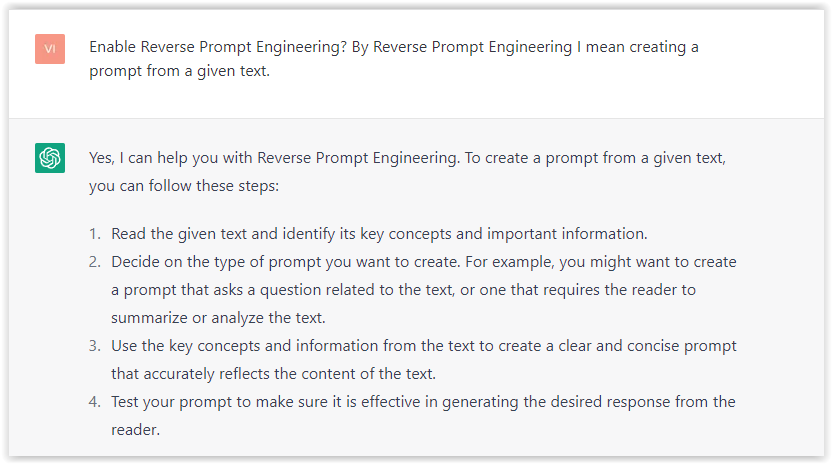SEO
Best New SEO Software I Use

I love tools and I have a pretty solid collection of tolls I am using daily. In this article I share my most recent SEO software that I really love. [Disclaimer: I may be paid a commission if you buy the premium subscription after clicking some links below. Or I may be not]
All-in-One Marketing Dashboard Tools
There are a few comprehensive SEO suites that report on anything under the sun, from on-page issues to rankings and backlinks. Surprisingly, none of them is enough for me, so I use these four depending on the tasks I am dealing with:
| Ahrefs | Semrush | Serpstat | Spyfu | |
| Features | Ranking analysis, keyword research, on-page audit, position monitoring, SERP analysis, competitive analysis, backlink research | |||
| Price | $99 | $99.95 | $19 | $39 |
They all have free trials, so you can totally check each of them before you decide which one you like best.
Here are my favorite features inside each platform (and actually why I have to use all of them):
Ahrefs: Advanced Keyword Research and Analysis
Ahrefs most powerful feature is their Keyword Explorer. Not only will it extend your keyword and calculate keyword difficulty (i.e. how high the organic competition is), it will also suggest related keywords. This helps a ton in finding alternative, less competitive keywords to focus on:

Advanced Keyword Research and Analysis
Semrush: Multi-Feature Position Tracking
Semrush is my very first SEO dashboard I’ve ever used. They have a ton of historical data and their tools are simply awesome. My favorite one is their ranking position tracker. I love the fact that you can track positions inside “Featured Snippets” and “People Also Ask” sections:

Multi-Feature Position Tracking
Serpstat: Keyword Clustering
Serpstat‘s Clustering feature is one of its kind. It helps you organize your keyword lists by relevancy, make sense of thousands of queries, understand your niche better and optimize for several keywords at a time. It’s a must-use feature for every topic research because it shows you how you can optimize one page for several queries.

Keyword Clustering
Spyfu: Indepth Position History
Spyfu is one of the oldest all-in-one marketing dashboards out there. Initially focusing on PPC tracking, the tool has successfully expanded into organic SEO. My by far favorite feature there is their organic history feature visualizing which pages were ranking for a give query throughout the years:

Indepth Position History
Web Analytics Tools
Finteza
Finteza is a great – and more importantly independent – web analytics suit that is both affordable and feature-rich. You can use Finteza to monitor your traffic channels, traffic quality and conversions. The tool also comes with a powerful feature set allowing you to create your own, again, independent, on-site advertising program as well as set up re-marketing campaigns.

Finteza analytics allows to slice and dice your data to research every demographic
Marketing Productivity and Collaboration Tools
I’ve tried hundreds tools to get organized and I’ve worked with many of them on a continuous basis, including Zoho, Trello, etc. Here I am featuring my currently favorite productivity and collaboration tool but I may expand the article with more options going forward.
Renderforest
Renderforest is a multi-feature content creation and branding tool that can help you create diverse content assets including videos, animations and branded mockups. Its online video creation platform is an exciting one because it can help anyone create professional videos without spending extra budgets on third-party creators or expensive software. You can create explainer videos, whiteboard videos, cartoon animations, and so much more.

Zenkit
Zenkit is the to-do list and mindmap builder with cool collaboration features. Zenkit is your marketing productivity Swiss knife: You can use it to organize just about anything, from content marketing editorials to a project timeline. Zenkit offers several ways to organize your lists, including lists (checkboxes), tables (my favorite one because I love tables!), calendars, and Trello-style Kanban view:

Marketing Productivity and Collaboration Tools
You can switch between layouts with one click of a mouse, copy-paste your to-do lists from excel or doc files, share your lists with your team, etc.
Social Media Promotion Tools
Social media strategy is an integral part of any digital marketing campaign.
The only tool I am currently using for social media promotion is Viral Content Bee, and yes it’s my own tool and the fact that I can totally recommend it as a secret social media marketing weapon makes me incredibly proud.

Viral Content Bee for Social Media Promotion
For every project I am promoting through Viral Content Bee, I make sure to:
- Retweet every VCB-driven tweet (to push it into my Twitter stream)
- Like as many VCB-driven updates on Linkedin, Pinterest and Tumblr
This way Viral Content Bee builds both my traffic and my social media interactions in a most meaningful way.
Branding Tools
Namify: Find a Cool Brand Name
Starting a new project? Use this cool business name generator to come up with some brandable domain names. Unlike any other name generator out there, this one utilizes Artificial Intelligence to find domain names which create cool niche associations. You will be surprised how many cool names are out there for your new site.
The tool takes care of other brand identity aspects on the fly:
- It will check social media sites to find whether your chosen name is still available
- It will create your logo right away
Easy to use and free!

Content Marketing Tools
There are lots of tools I am using for inspiration and topic research, including Google of course. Here are two of those tools I am using on a daily basis:
TextOptimizer: Content Optimization and Research
TextOptimizer is the semantic search tool that extracts related topics and entities from Google’s SERPs and lets you better research and optimize your content. It directs and empowers your writing and helps you structure your content in a most efficient way too. You can check my detailed review of Text Optimizer here.

TextOptimizer: Content Optimization and Research
Buzzsumo: Competition Research, Influencer Marketing, Content Inspiration
Buzzsumo is another tool that can be used in so many ways and improve so many processes.
My favorite features inside Buzzsumo are:
- “Content alerts” sending you emails whenever anyone mentions your keyword (e.g. your brand name in-content)
- Content Analyzer allowing you to see (recently) popular content around any keyword
- Question Analyzer allowing you to see questions around any keywords that are being asked in the discussion boards (including Reddit, Quora and Amazon Q&A)
- Backlink Analyzer allowing you to see people behind backlinks (there’s really no alternative to that!). You can also filter backlinks by date which gives you a solid list of bloggers to reach out to:

Competition Research, Influencer Marketing, Content Inspiration
Link Research Tools
Apart from the all-in-one SEO suites that are described above that include backlink research feature, there’s a free tool that lets you explore your competitor’s (or your own) backlinks: This Free Backlink Checker Tool
It works incredibly smoothly: Simply put your domain or URL and use filters to dig through the referring URLs, anchor texts, link types (follow/nofollow), etc.:

There are several more backlink checking tools that I am going to check but that one is a good place to start.
New Tools I Am Going to Dig in Next:
I don’t have time to play with all the tools I’d like to, but here are a few of those that look really promising:
- Content King: Content tracking and monitoring software that reports pages and consequent rankings impact
- Convert Kit: A cool email marketing and automation software which comes highly recommended
- Mailshake: A great email outreach tool that helps you send nice personalized emails
- Pitchbox: An influencer and outreach platform which you cannot buy unless you do a demo (which is why I haven’t tried it yet)
- Business process management tools for more streamlined operations
And which tools are you planning to try? Give me more ideas!
Please contact me if you think I may be interested in your tool
Latest posts by Ann Smarty (see all)
Source link
SEO
brightonSEO Live Blog

Hello everyone. It’s April again, so I’m back in Brighton for another two days of Being the introvert I am, my idea of fun isn’t hanging around our booth all day explaining we’ve run out of t-shirts (seriously, you need to be fast if you want swag!). So I decided to do something useful and live-blog the event instead.
Follow below for talk takeaways and (very) mildly humorous commentary. sun, sea, and SEO!
SEO
Google Further Postpones Third-Party Cookie Deprecation In Chrome

Google has again delayed its plan to phase out third-party cookies in the Chrome web browser. The latest postponement comes after ongoing challenges in reconciling feedback from industry stakeholders and regulators.
The announcement was made in Google and the UK’s Competition and Markets Authority (CMA) joint quarterly report on the Privacy Sandbox initiative, scheduled for release on April 26.
Chrome’s Third-Party Cookie Phaseout Pushed To 2025
Google states it “will not complete third-party cookie deprecation during the second half of Q4” this year as planned.
Instead, the tech giant aims to begin deprecating third-party cookies in Chrome “starting early next year,” assuming an agreement can be reached with the CMA and the UK’s Information Commissioner’s Office (ICO).
The statement reads:
“We recognize that there are ongoing challenges related to reconciling divergent feedback from the industry, regulators and developers, and will continue to engage closely with the entire ecosystem. It’s also critical that the CMA has sufficient time to review all evidence, including results from industry tests, which the CMA has asked market participants to provide by the end of June.”
Continued Engagement With Regulators
Google reiterated its commitment to “engaging closely with the CMA and ICO” throughout the process and hopes to conclude discussions this year.
This marks the third delay to Google’s plan to deprecate third-party cookies, initially aiming for a Q3 2023 phaseout before pushing it back to late 2024.
The postponements reflect the challenges in transitioning away from cross-site user tracking while balancing privacy and advertiser interests.
Transition Period & Impact
In January, Chrome began restricting third-party cookie access for 1% of users globally. This percentage was expected to gradually increase until 100% of users were covered by Q3 2024.
However, the latest delay gives websites and services more time to migrate away from third-party cookie dependencies through Google’s limited “deprecation trials” program.
The trials offer temporary cookie access extensions until December 27, 2024, for non-advertising use cases that can demonstrate direct user impact and functional breakage.
While easing the transition, the trials have strict eligibility rules. Advertising-related services are ineligible, and origins matching known ad-related domains are rejected.
Google states the program aims to address functional issues rather than relieve general data collection inconveniences.
Publisher & Advertiser Implications
The repeated delays highlight the potential disruption for digital publishers and advertisers relying on third-party cookie tracking.
Industry groups have raised concerns that restricting cross-site tracking could push websites toward more opaque privacy-invasive practices.
However, privacy advocates view the phaseout as crucial in preventing covert user profiling across the web.
With the latest postponement, all parties have more time to prepare for the eventual loss of third-party cookies and adopt Google’s proposed Privacy Sandbox APIs as replacements.
Featured Image: Novikov Aleksey/Shutterstock
SEO
How To Write ChatGPT Prompts To Get The Best Results

ChatGPT is a game changer in the field of SEO. This powerful language model can generate human-like content, making it an invaluable tool for SEO professionals.
However, the prompts you provide largely determine the quality of the output.
To unlock the full potential of ChatGPT and create content that resonates with your audience and search engines, writing effective prompts is crucial.
In this comprehensive guide, we’ll explore the art of writing prompts for ChatGPT, covering everything from basic techniques to advanced strategies for layering prompts and generating high-quality, SEO-friendly content.
Writing Prompts For ChatGPT
What Is A ChatGPT Prompt?
A ChatGPT prompt is an instruction or discussion topic a user provides for the ChatGPT AI model to respond to.
The prompt can be a question, statement, or any other stimulus to spark creativity, reflection, or engagement.
Users can use the prompt to generate ideas, share their thoughts, or start a conversation.
ChatGPT prompts are designed to be open-ended and can be customized based on the user’s preferences and interests.
How To Write Prompts For ChatGPT
Start by giving ChatGPT a writing prompt, such as, “Write a short story about a person who discovers they have a superpower.”
ChatGPT will then generate a response based on your prompt. Depending on the prompt’s complexity and the level of detail you requested, the answer may be a few sentences or several paragraphs long.
Use the ChatGPT-generated response as a starting point for your writing. You can take the ideas and concepts presented in the answer and expand upon them, adding your own unique spin to the story.
If you want to generate additional ideas, try asking ChatGPT follow-up questions related to your original prompt.
For example, you could ask, “What challenges might the person face in exploring their newfound superpower?” Or, “How might the person’s relationships with others be affected by their superpower?”
Remember that ChatGPT’s answers are generated by artificial intelligence and may not always be perfect or exactly what you want.
However, they can still be a great source of inspiration and help you start writing.
Must-Have GPTs Assistant
I recommend installing the WebBrowser Assistant created by the OpenAI Team. This tool allows you to add relevant Bing results to your ChatGPT prompts.
This assistant adds the first web results to your ChatGPT prompts for more accurate and up-to-date conversations.
It is very easy to install in only two clicks. (Click on Start Chat.)
For example, if I ask, “Who is Vincent Terrasi?,” ChatGPT has no answer.
With WebBrower Assistant, the assistant creates a new prompt with the first Bing results, and now ChatGPT knows who Vincent Terrasi is.
 Screenshot from ChatGPT, March 2023
Screenshot from ChatGPT, March 2023You can test other GPT assistants available in the GPTs search engine if you want to use Google results.
Master Reverse Prompt Engineering
ChatGPT can be an excellent tool for reverse engineering prompts because it generates natural and engaging responses to any given input.
By analyzing the prompts generated by ChatGPT, it is possible to gain insight into the model’s underlying thought processes and decision-making strategies.
One key benefit of using ChatGPT to reverse engineer prompts is that the model is highly transparent in its decision-making.
This means that the reasoning and logic behind each response can be traced, making it easier to understand how the model arrives at its conclusions.
Once you’ve done this a few times for different types of content, you’ll gain insight into crafting more effective prompts.
Prepare Your ChatGPT For Generating Prompts
First, activate the reverse prompt engineering.
- Type the following prompt: “Enable Reverse Prompt Engineering? By Reverse Prompt Engineering I mean creating a prompt from a given text.”
 Screenshot from ChatGPT, March 2023
Screenshot from ChatGPT, March 2023ChatGPT is now ready to generate your prompt. You can test the product description in a new chatbot session and evaluate the generated prompt.
- Type: “Create a very technical reverse prompt engineering template for a product description about iPhone 11.”
 Screenshot from ChatGPT, March 2023
Screenshot from ChatGPT, March 2023The result is amazing. You can test with a full text that you want to reproduce. Here is an example of a prompt for selling a Kindle on Amazon.
- Type: “Reverse Prompt engineer the following {product), capture the writing style and the length of the text :
product =”
 Screenshot from ChatGPT, March 2023
Screenshot from ChatGPT, March 2023I tested it on an SEJ blog post. Enjoy the analysis – it is excellent.
- Type: “Reverse Prompt engineer the following {text}, capture the tone and writing style of the {text} to include in the prompt :
text = all text coming from https://www.searchenginejournal.com/google-bard-training-data/478941/”
 Screenshot from ChatGPT, March 2023
Screenshot from ChatGPT, March 2023But be careful not to use ChatGPT to generate your texts. It is just a personal assistant.
Go Deeper
Prompts and examples for SEO:
- Keyword research and content ideas prompt: “Provide a list of 20 long-tail keyword ideas related to ‘local SEO strategies’ along with brief content topic descriptions for each keyword.”
- Optimizing content for featured snippets prompt: “Write a 40-50 word paragraph optimized for the query ‘what is the featured snippet in Google search’ that could potentially earn the featured snippet.”
- Creating meta descriptions prompt: “Draft a compelling meta description for the following blog post title: ’10 Technical SEO Factors You Can’t Ignore in 2024′.”
Important Considerations:
- Always Fact-Check: While ChatGPT can be a helpful tool, it’s crucial to remember that it may generate inaccurate or fabricated information. Always verify any facts, statistics, or quotes generated by ChatGPT before incorporating them into your content.
- Maintain Control and Creativity: Use ChatGPT as a tool to assist your writing, not replace it. Don’t rely on it to do your thinking or create content from scratch. Your unique perspective and creativity are essential for producing high-quality, engaging content.
- Iteration is Key: Refine and revise the outputs generated by ChatGPT to ensure they align with your voice, style, and intended message.
Additional Prompts for Rewording and SEO:
– Rewrite this sentence to be more concise and impactful.
– Suggest alternative phrasing for this section to improve clarity.
– Identify opportunities to incorporate relevant internal and external links.
– Analyze the keyword density and suggest improvements for better SEO.
Remember, while ChatGPT can be a valuable tool, it’s essential to use it responsibly and maintain control over your content creation process.
Experiment And Refine Your Prompting Techniques
Writing effective prompts for ChatGPT is an essential skill for any SEO professional who wants to harness the power of AI-generated content.
Hopefully, the insights and examples shared in this article can inspire you and help guide you to crafting stronger prompts that yield high-quality content.
Remember to experiment with layering prompts, iterating on the output, and continually refining your prompting techniques.
This will help you stay ahead of the curve in the ever-changing world of SEO.
More resources:
Featured Image: Tapati Rinchumrus/Shutterstock
-

 PPC6 days ago
PPC6 days ago19 Best SEO Tools in 2024 (For Every Use Case)
-

 MARKETING7 days ago
MARKETING7 days agoEcommerce evolution: Blurring the lines between B2B and B2C
-
SEARCHENGINES5 days ago
Daily Search Forum Recap: April 19, 2024
-
SEARCHENGINES6 days ago
Daily Search Forum Recap: April 18, 2024
-

 WORDPRESS6 days ago
WORDPRESS6 days agoHow to Make $5000 of Passive Income Every Month in WordPress
-

 SEO7 days ago
SEO7 days ago2024 WordPress Vulnerability Report Shows Errors Sites Keep Making
-

 WORDPRESS7 days ago
WORDPRESS7 days ago10 Amazing WordPress Design Resouces – WordPress.com News
-

 SEO6 days ago
SEO6 days ago25 WordPress Alternatives Best For SEO
















You must be logged in to post a comment Login